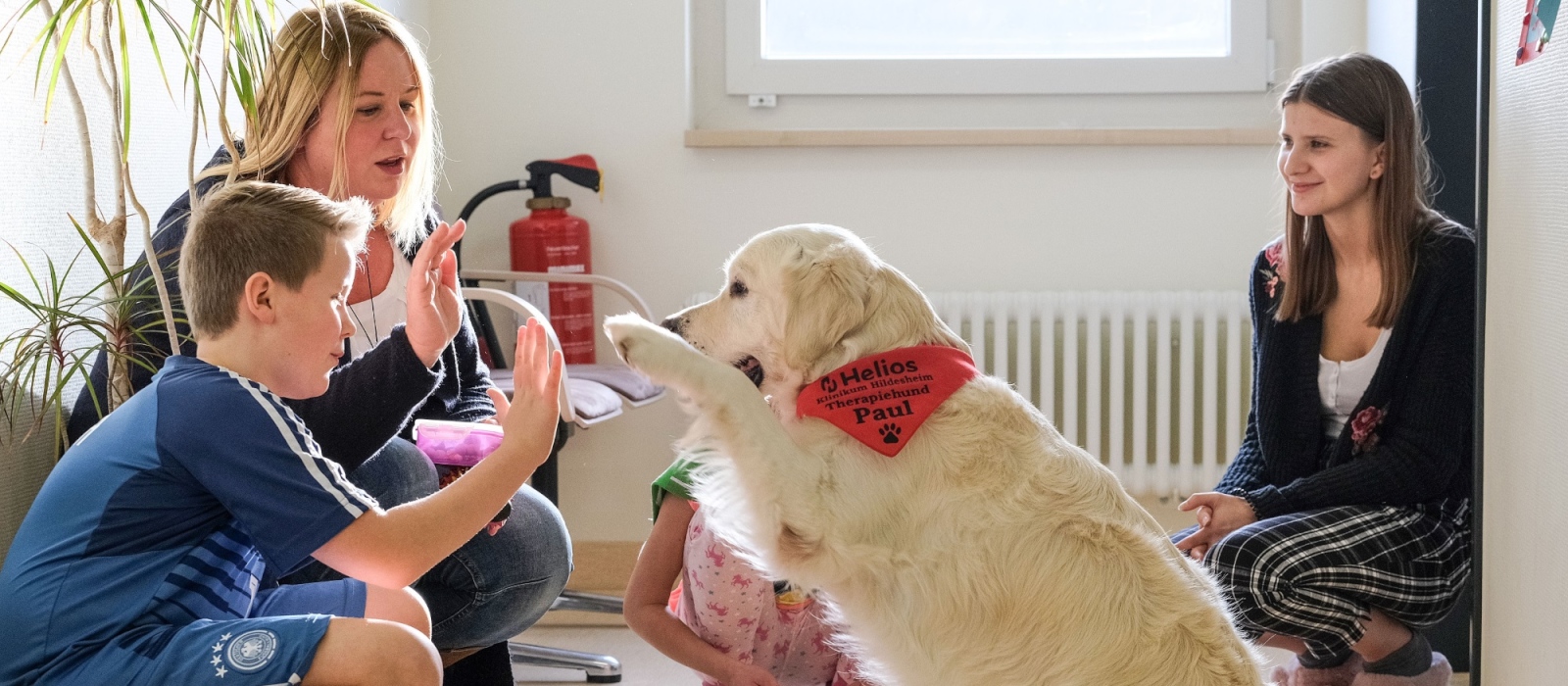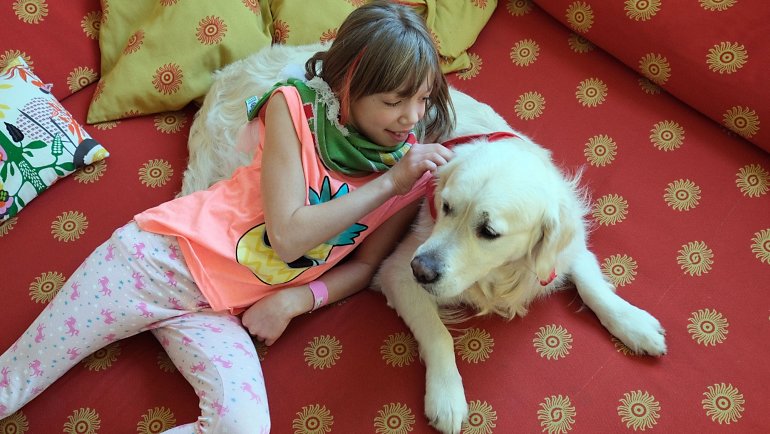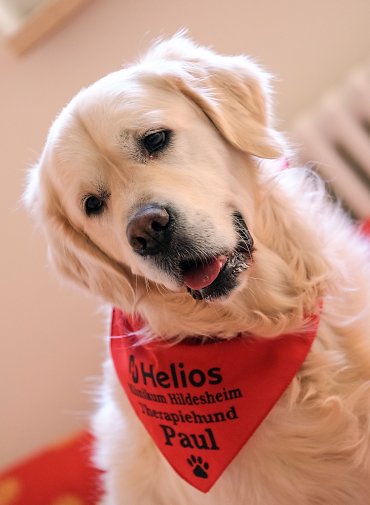

This friendly golden retriever has been bringing fun, energy and affection into the daily routine of the hospital. Along with his owner Simone Siemke, a family and children’s nurse , Paul supports the medical treatment on the children’s psychosomatics, geriatrics and palliative care wards by coming in and lifting patients’ spirits two or three times every week.
(Published: January 2019)
“On the children’s ward, the little ones can give Paul commands, teach him tricks or give him a reward,” said Siemke. “Some of the children are very shy and lack self-confidence, but when they’re playing with the dog they forget that, and really come out of their shells.” For the older patients, and those suffering from dementia, part of Paul’s training was to learn simple cognitive and motor-function exercises that he can “play” when he goes into the geriatrics ward.

Dogs are proven to have a positive effect on the mood and morale of all kinds of people. A dog doesn’t prejudge anyone, shows affection without expecting anything, and makes an outstanding companion. In particular, a trained therapy dog like Paul can often help ill people to rediscover feelings of happiness, affection and responsibility. Treatments that incorporate the use of therapy dogs can bring improvement in patients suffering from a wide range of mental and physical illnesses; the only precondition is that the individual patient is not allergic to the animals or in any way afraid of them, and agrees to the visits.
Paul’s most challenging assignment so far? “Right at the start a patient in the palliative care ward asked if she could pet a dog one more time ,” Siemke said. “Oftentimes what is needed is Paul’s mobility, but this time it was his very calm and peaceful temper. He just laid quietly on the patient’s bed for half an hour and let her stroke him. It was very warm in the room, and that was the hardest thing for him, but he handled it just great.”
Life in the hospital is not all fun and relaxation for Paul – in fact, it’s sometimes a very difficult job, both physically and emotionally. Like a human employee, he has a contract, which stipulates how often and for how long he should work and when he is free to just be a regular dog. Away from the hospital he can let loose with his full energy – Paul is only two-and-a-half years old – while playing with other dogs, or enjoying long walks with Siemke.
A therapy dog must be very carefully selected and trained. “Generally, all breeds can work as therapy dogs – the only important factors are that they have no potential for aggression and get along well with their owners,” said Siemke. Along with Paul, she completed a 20-month course of training. For Siemke, it included the practical and theoretical aspects of handling and supervising a therapy dog. For Paul, the emphasis was on resistance to stress, patience and obedience.
Therapy dogs are used most commonly in kindergartens and schools, psychiatric hospitals and, occasionally, prisons and other correctional facilities. In Germany, at least, they are being used so far in only a handful of hospitals, and Paul is the first in the Hildesheim region.
Bringing animals into hospitals is generally prohibited for reasons of hygiene, and allowing a therapy dog inside the Helios Hospital Hildesheim is an absolute exception made only under very clear hygienic guidelines and with very strict limitations. This means Paul is allowed to use only a few corridors and stairways, which are cleaned immediately after he passes.
Paul must also undergo veterinary testing and be regularly inoculated, dewormed, bathed and brushed. Before and after each human contact with him, hands and surfaces are disinfected – for the safety of both the patients and their much-loved canine friend.
Contact
Helios Kliniken GmbH
Friedrichstr. 136
10117 Berlin
Germany
T +49 30 521 321-0

